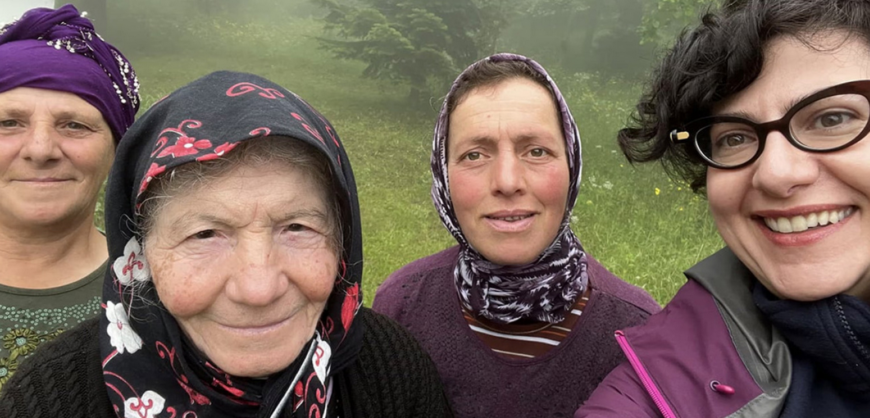Romeyka, Descendant of Ancient Greek, Faces Extinction with No Written Form and Dwindling Speakers
Professor Ioanna Sitaridou, right, with a 100 year-old Romeyka speaker in Turkey’s Trabzon region. Photograph: Professor Ioanna Sitaridou
An endangered variant of Greek, spoken by a mere few thousand individuals in the remote mountain hamlets of northern Turkey, serves as a "living bridge" to antiquity, researchers assert. Despite its ties to the language of Homer, Romeyka faces the threat of extinction due to its lack of a written form and the advanced age of its speakers.
The exact count of Romeyka speakers remains elusive, given its absence in written records. However, it persists orally in the mountainous regions surrounding Trabzon, near the Black Sea coast.
As the remaining speakers grow older, this dialect teeters on the brink of oblivion. To salvage its unique linguistic nuances, a University of Cambridge scholar initiated the "last chance" Crowdsourcing Romeyka project, urging native speakers worldwide to contribute recordings of the language.
Ioanna Sitaridou, a professor specializing in Spanish and historical linguistics, anticipates contributions from a widespread diaspora, including the United States, Australia, and various European countries. Despite religious and national disparities, these diasporic communities maintain linguistic ties with their Turkish counterparts.
Contrary to evolving from modern Greek, Romeyka traces its lineage to the Hellenistic era preceding Christ, sharing striking resemblances with ancient Greek. Notably, its retention of ancient grammatical structures, such as the infinitive verb form, sets it apart. While modern Greek employs a distinct construction, Romeyka adheres to the archaic "I want to go" formulation, defunct in other Greek dialects since medieval times.
Sitaridou's research challenges the notion of modern Greek as a linguistic isolate, positioning Romeyka as its sibling rather than progeny. Despite their shared heritage, modern Greek and Romeyka remain mutually unintelligible, akin to speakers of Portuguese and Italian.
The historical backdrop of Greek presence in the Black Sea region intertwines with religious and cultural shifts, amplifying the significance of Romeyka's preservation. Despite linguistic assimilation triggered by Turkish influence and cultural stigmatization, the dialect endures as a testament to its speakers' ancestral roots.
While the fate of Romeyka hangs in the balance, Sitaridou refrains from imposing preservation mandates, recognizing the autonomy of its speakers. Nevertheless, she underscores the pivotal role of minority languages in fostering communal identity and societal integration.
The online initiative, she suggests, could serve as a lifeline for Romeyka, fostering a renewed sense of cultural belonging and safeguarding its legacy for future generations.









